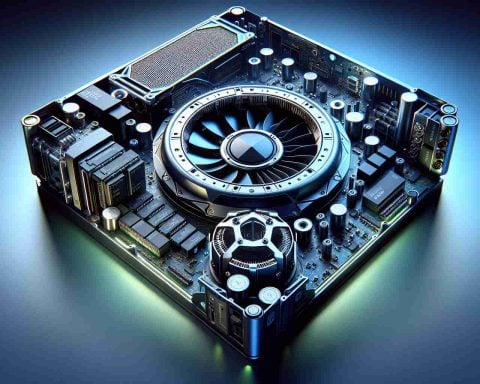- Gelion PLC announced a major breakthrough in Gen 3 Sulfur Cathode technology, propelling its stock up by 17%.
- This new technology is optimally compatible with solid-state electrolytes, enhancing battery performance for electric vehicles and aircraft.
- Solid-state batteries, known for superior energy density and safety, are further advanced by Gelion’s cost-effective and sustainable sulfur cathodes.
- Gelion aims to scale operations and partner with established manufacturers to commercialize this revolutionary energy storage solution.
- The potential impact on energy storage, electric vehicles, and aerospace industries could be transformative, advancing clean energy initiatives.
A surge of excitement electrified the markets today as Gelion PLC unleashed news of a pioneering advance in battery technology. Under a vibrant morning sun, the company’s stock catapulted, fueled by a breakthrough that promises to redefine the landscape of energy storage. Their Gen 3 Sulfur Cathode technology, rigorously tested, demonstrated exceptional compatibility with solid-state electrolytes, sparking visions of next-generation batteries powering electric cars and aircraft into the future.
This innovation shines a spotlight on the evolving field of solid-state batteries, renowned for their higher energy density, impeccable safety credentials, and extended lifespan over conventional lithium-ion cells. But the spotlight now catches a new star: Gelion’s sulfur cathodes. In their brilliance, they offer not only superior performance but also cost efficiency, sustainability, and an abundant supply—a tantalizing prospect for industries hungry for innovation.
As dust settled on the trading floor, Gelion’s shares had vaulted by 17%, positioning the company as a beacon of potential in an increasingly competitive space. They stand ready to scale their operations, forging alliances with established solid-state battery manufacturers to bring their revolutionary technology to market.
The implications are clear: should Gelion succeed in this venture, the disruptive potential for energy storage, electric vehicles, and aerospace industries could be transformative. Imagine a world where clean energy is not just a promise but a thriving reality, where innovation and sustainability walk hand in hand.
Why Gelion’s Battery Breakthrough Matters Now More Than Ever
Overview of Gelion’s Gen 3 Sulfur Cathode Technology
Gelion PLC’s recent announcement about their breakthrough in Gen 3 Sulfur Cathode technology for solid-state batteries offers a glimpse into the future of energy solutions. This advancement is particularly notable because it addresses current challenges in the energy and transportation sectors while promising enhanced performance and sustainability.
Features and Advantages of Gelion’s Technology
1. High Energy Density: The sulfur cathode technology boasts a higher energy density compared to conventional lithium-ion batteries. This increases the potential range and efficiency of electric vehicles and airplanes.
2. Improved Safety: Utilizing solid-state electrolytes instead of liquid electrolytes significantly reduces the risk of battery fires, offering a considerable safety advantage.
3. Extended Lifespan: The durability of these batteries is expected to surpass that of current options, lowering replacement costs and waste in the long run.
4. Cost Efficiency: Sulfur is more abundant and cheaper than the materials used in lithium-ion batteries, potentially reducing production costs.
5. Sustainability: The use of sulfur, a byproduct of industrial processes, emphasizes sustainability by utilizing otherwise wasted materials.
Potential Challenges and Limitations
– Production Scale-Up: Transitioning from innovative lab results to large-scale manufacturing can pose significant challenges, including ensuring consistent quality and managing costs.
– Compatibility with Current Systems: While promising, new technology requires compatibility assessments with existing electric vehicle and aerospace infrastructure.
– Market Competition: Other companies are developing their own solid-state solutions; Gelion will need to distinguish itself and secure strategic partnerships.
Impact on Different Industries
– Electric Vehicles (EVs): This technology can revolutionize the EV market, providing longer range, faster charging, and more cost-effective battery solutions.
– Aerospace Industry: Improved energy storage can lead to the development of fully electric aircraft and hybrid systems, reducing carbon emissions.
– Energy Storage: Enhanced batteries will benefit grid storage solutions, boosting renewable energy integration.
Market Analysis and Future Predictions
The energy storage market is projected to grow exponentially, with solid-state batteries playing a pivotal role. If Gelion successfully implements its technology on a commercial scale, it could capture a significant market share and drive substantial changes across energy-dependent industries.
Tutorials and How-To Guides
For businesses and enthusiasts interested in exploring the technology further, resources might include detailed whitepapers and technical guides outlining the implementation of sulfur cathode technology.
Related Links for Further Reading
– Gelion: Explore their technology, mission, and more about their breakthrough products.
– Bloomberg: For further market analysis and trends in the energy sector.
– Tesla: Insights into electric vehicle innovations, similar to industries where solid-state advancements are applied.
By understanding both the promise and challenges of Gelion’s innovation, stakeholders can better prepare for and adapt to emerging trends in sustainable energy solutions.














